
With tuition fees reaching an all-time high and continuing to steep ever higher over the past decade, college has become a luxury that many simply cannot afford.
Couple that with steadily rising unemployment rates among college graduates, and you might also begin to question whether traditional university education is actually worth the hundreds of thousands of dollars in investments and student loans.
Even if you can afford to pay for college, you might find yourself short on time due to work, family commitments, or any other number of circumstances.
Luckily, attending a university in person is no longer the only option for a quality college education.
Thanks to the internet, a massive amount of knowledge is available at no cost to anyone with an internet connection.
This article will teach you all you need to know about distance learning.
We’ll cover everything:
- Best websites to find tutorials
- Reliable online study resources
- Entertaining educational video channels
- The most affordable online college degrees
- Massive Open Online Courses (MOOCs)
We’ll even share the secret to getting an Ivy League education free of charge.

In its 2009 , the U.S. Department of Education found that “classes with online learning (taught completely online, or blended), on average produce stronger student learning outcomes than do classes with solely face-to-face instruction.”
This is an extremely promising finding. However, distance learning is a very proactive undertaking.
In order to excel, you need to demonstrate a particular set of skills and exercise impressive self-discipline.

These seven tips will get you started—and help you successfully finish—your distance learning journey.
- Manage your time efficiently.
Effective time management is one of the key components to becoming a successful distance learning student.
For most learners opting for an online degree, study will need to be scheduled around work and family commitments, which is why it’s essential you leave enough hours in the week dedicated to hitting the books.
- Take your time to master the material.
Interestingly enough, the U.S. Department of Education report that we mentioned earlier attributes the success of online learning not to technology, but to time.
The effectiveness of online education lies in Mastery Learning, an approach developed by educational psychologist Benjamin Bloom.
Distance learning is successful precisely because it allows students to follow along with the course at their own pace.
So it’s absolutely vital that you take your time to master particular concepts before you move on to the more advanced subjects.

- Stay organized.
As follows from the tip number one, it pays to keep on top of your distance coursework, especially if you have a hectic schedule.
Searching for course materials beneath a pile of dirty cutlery is not the way you want to kick off your distance learning course.
Rather, keep all your materials well organized and in a place where you don’t need to search high and low to find them. Trust us, it works!
- Create a quiet study area.
A study zone where you’re free from the stress and strain of everyday life—and where you’re able to get your head in the books—can be a real godsend.
When you have so much on your plate, it’s important to stay relaxed and positive.
If you can’t find the peace and quiet you need at home, seek the sanctuary of your local library.

- Keep your eye on the endgame.
While it’s important not to get carried away, it’s sensible to focus on explicit goals and exactly what you want to achieve.
For example, if you have a large assignment due, set yourself a series of small targets along the way until you reach the glorious day you finally hand it in.
Cutting your workload into manageable, bite-sized chunks avoids sending you through a whirlwind of hate and self-loathing as you struggle to meet deadlines.
- Don’t procrastinate.
Procrastination is rife in all walks of life, but a tendency to leave things to the last minute increases the chances of something eventually blowing up in your face.
Any number of issues can keep you away from learning. Imagine your internet connection died—perish the thought—or your laptop gave up the ghost, or you had a family crisis.
Don’t let unexpected disasters get in the way of your education.
Evaluate your strengths and weaknesses to make realistic estimates about how long a particular task will take you to complete. Then give yourself some time to get into the working mindset, and try as much as possible to keep pace with the schedule you’ve set.
- Back up all of your information.
With online learning, all of your schoolwork is in a digital format. Always back up your assignments and learning resources on an external drive or cloud storage to make sure that your files remain safe in case of technological complications.
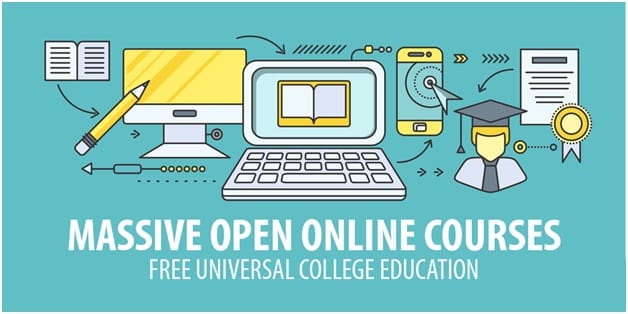
Recent years have seen a huge development in college and university courses becoming available online, writes The New Yorker.
Known as Massive Open Online Courses, or MOOCs, this new type of college classes is based entirely on online video lectures.
“Massive” refers to their capacity to enroll tens of thousands of students at a time, and they’re “Open” to anyone with an internet connection.
Ultimately, most MOOCs follow the traditional college class structure, relying on assignments throughout the course and a final evaluation to determine whether the student passes or fails.
There are three giants in the MOOC business:

A Stanford University Online spinoff, Coursera is currently the largest MOOC platform, aiming to provide universal access to the world’s best education.
To do this, Coursera partners with some of the top universities and organizations around the world, offering 1,858 courses from 143 partners in 28 counties.
The way it works is easy:
- Each Coursera MOOC features pre-recorded videos, projects, peer-graded assignments, and quizzes to help you test your knowledge.
- Once enrolled, you’ll be able to connect with thousands of other students to debate ideas, discuss course materials, and even find tutors if you find yourself struggling to master a particular concept.
- Upon completion of the course, you will receive an official certificate.

Based in Palo Alto, Udacity focuses on courses in science and technology. It offers classes in web development, software engineering, data science, and iOS and Android programming, among other topics. For the most part, the curricula for Udacity’s MOOCs are developed by industry leaders like Google, Amazon, Facebook, and AT&T.
While all of the video course materials on the website are free of charge, Udacity also offers something called a “Nanodegree” for a fee.
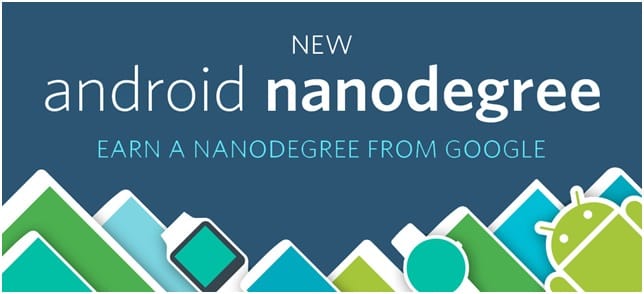
Source: androidauthority.net
Nanodegree credentials
While you can certainly follow the free courses independently to build your portfolio, a Nanodegree provides you with a sort of “stamp of approval” from Udacity, which vouches for your successful completion of a course to your future employers.
Enrolling in a Nanodegree program will provide you with the following benefits:
- Consistent feedback: Your projects will be graded, and you’ll receive detailed in-line comments.
- Access to discussion forums and chat: You can interact with both fellow students and instructors, and ask questions, 24/7.
- One-on-one sessions: You receive biweekly, half-hour video chats with instructors and/or staff to discuss your progress more thoroughly.
- Office hours: You can participate in broadcasting Q&A sessions with instructors via Google Hangouts on Air twice a week.
- Career services: You gain access to networking opportunities and job placement assistance.

A joint effort between M.I.T. and Harvard, edX is the youngest MOOC producer of the three.
Unlike its competitors, edX is based on a confederation model, which means that each of its member institutions has full control over its own MOOC production.
EdX offers over 650 courses in math, computer science, and humanities and has over 1,700 faculty and staff members involved in the content-creation process.
Its contributors and members include Ivy League schools like Dartmouth, Cornell, Columbia, and Princeton, as well as some of the most high-profile universities in Europe, Asia, and Australia.
EdX is the only major MOOC producer that is both nonprofit and open-source.
To find out more, watch the video below, and enroll in the edX demo course to better understand how the platform works.
Nonprofit organizations and MOOCs provide you with certification upon successful completion of a program.
But if an accredited online diploma is what you’re after, here’s a list of the top 11 most affordable online colleges and universities you’ll love.
- Daytona State College – $92 per credit for residents ($560 for non-residents)
The unbelievably low tuition for residents is one of the most attractive things about this institution.
- University of Wyoming – $108 per credit
These web-based distance learning courses lead to degrees in education and nursing. Every course is certified by the Higher Learning Commission.
- Fort Hays State University – $182 per credit
The tuition here is amazingly low. It’s a great place to receive affordable education of decent quality.

- Columbia Southern University – $200 for undergraduate students and $265 for graduate students
Importantly, online students at Columbia Southern University receive a helping hand when it comes to buying textbooks. Moreover, distance learners receive a 10% discount on tuition.
- Lamar University in Beaumont, Texas – On average $220 per credit
Financial aid options and flexible payment plans make the courses of this institution accessible to anyone, regardless of income.
- SUNY College of Technology in Delhi – $245 per credit
Founded in 1913, this institution remains relevant with its many online courses, which attract students from all over the States and beyond.

- University of Nebraska in Omaha– $250 per credit
Located in the heart of Nebraska, this online college is recognized as one of the most forward-thinking and affordable institutions.
- Old Dominion University in Norfolk, Virginia – $285 per credit
Taking into account the tuition rates, this university is a really good choice for anyone who wants a better education for less money.
- Embry-Riddle Aeronautical University – $325 per unit
Specializing in aviation and aerospace, this university offers great online courses, accessible to anyone regardless of income level.
- Indiana University – Purdue University Fort Wayne– $328 per credit
This public university with a remarkable history offers more than 175 courses. You’ll easily find something to your taste here.
- University of the People – FREE OF CHARGE

Founded in 2009 by Shai Reshef, University of the People is a tuition-fee, nonprofit, online academic institution that offers undergraduate degree programs in business administration and computer science. The university has recently launched an MBA program as well.
The university cooperates with NYU, Yale, the Catalyst Initiative, and Hewlett-Packard to provide its students with opportunities for research, internships, and further education.
Though the institution’s primary focus is on students in developing nations, admission is open to everyone. Students from nearly 130 countries have been accepted since the university’s establishment.
Even if a university degree or coursework isn’t something you’re looking for at the moment, the internet is full of other brilliant places to learn.
Here are a few of our personal favorite websites and channels.

“A personalized learning resource for all ages,” Khan Academy began with founder Sal Khan uploading several math tutorial videos to YouTube in 2006, just so he could share them with his friends and family more conveniently.
The unexpected popularity of the videos and the overwhelmingly positive feedback prompted Khan to quit his job as a hedge fund analyst in 2009 to become a full-time educational content creator.
Since then, Khan Academy has developed into a rich and diverse nonprofit online learning platform, funded entirely by donations from philanthropic organizations like the Bill and Melinda Gates Foundation and companies like Google.
Today, KhanAcademy.org offers practice exercises and personalized dashboards for users to track their progress as they follow along with the instructional videos.

The Academy’s expertise has also grown exponentially, now offering courses and tutorials not only in math, but also 15 other subjects in arts and humanities, science, economics and finance, and computing.
It also often partners with organizations and institutions like NASA, The Museum of Modern Art, The California Academy of Sciences, and MIT to create specialized content.
Very importantly:
Khan Academy is multilingual.
The Spanish version of the website was launched in 2013. Since then, KhanAcademy.org has been translated into 23 languages, and their educational videos into 65.
University of Reddit is an educational platform that allows Reddit community members (some of them actual university professors) to share their expertise with each other.
Combining online lectures with YouTube tutorials, the website currently offers classes in 11 categories such as art, music, philosophy, science, language, technology, math, and social sciences.
Education Meets Entertainment on YouTube
YouTube was the original home of Khan Academy, and over the years that followed, it has become the platform of choice for dozens of other incredible educators as well.
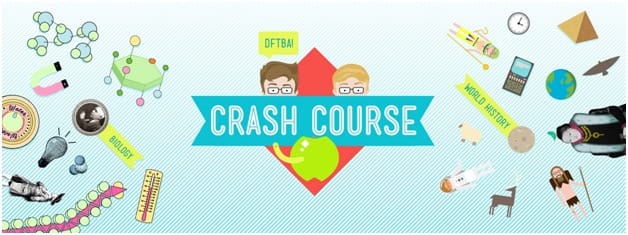
source: openculture.com
Since it was started by Hank and John Green of the VlogBrothers in 2012, Crash Course has produced over 475 educational videos on topics in science and humanities and has gained over 4 million subscribers.
The series is professionally shot on custom-built sets and is accompanied by illustrations from the Thought Café.
Because several Crash Course series are structured similarly to College Board’s Advanced Placement (AP) courses, many students and teachers are choosing to use the videos to supplement their classes.
Right now Crash Course consists of 15 series in science and humanities: Physics (the most recent addition), Literature, Biology, Philosophy, Chemistry, Psychology, Ecology, World History, Astronomy, U.S. History, U.S. Government and Politics, Anatomy & Physiology, Big History, Economics, and Intellectual Property.

With over 3 million subscribers, SciShow is home to nearly 820 educational videos on topics in the fields of biology, physics, chemistry, zoology, entomology, botany, meteorology, astronomy, medicine, anthropology, psychology, and computer science.
Its spin-off channel, SciShow Space, was launched recently and specializes in topics related to, well, space.
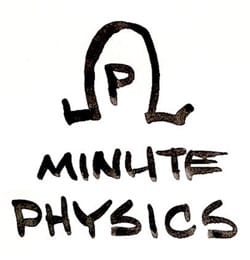
As the title suggests, Minute Physics has a very unique format. It consists largely of time-lapsed drawings explaining concepts in physics in under a minute.
Minute Physics has over 3 million subscribers and is also available in Spanish.
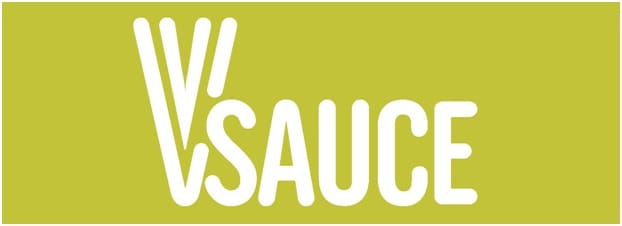
YouTube channel-turned-brand Vsauce currently consists of five separate channels.
Averaging 2 to 8 million views per video, Vsauce produces episodes on topics in science and philosophy, as well as gaming, culture, technology, and other areas of general interest.

Last but not least, this London-based channel became popular after its first video explaining the difference between the United Kingdom, Great Britain, and England went viral.
Although CGP Grey now has several spin-off channels and podcasts, the channel’s main attraction is Grey Explains, a series of explanatory videos on topics in politics, economics, geography, and British culture.
Since the channel’s debut in 2010, it has received over 198 million views in total. And in a truly British manner, he’s developed a signature move of including hidden references to Monty Python videos in his works.